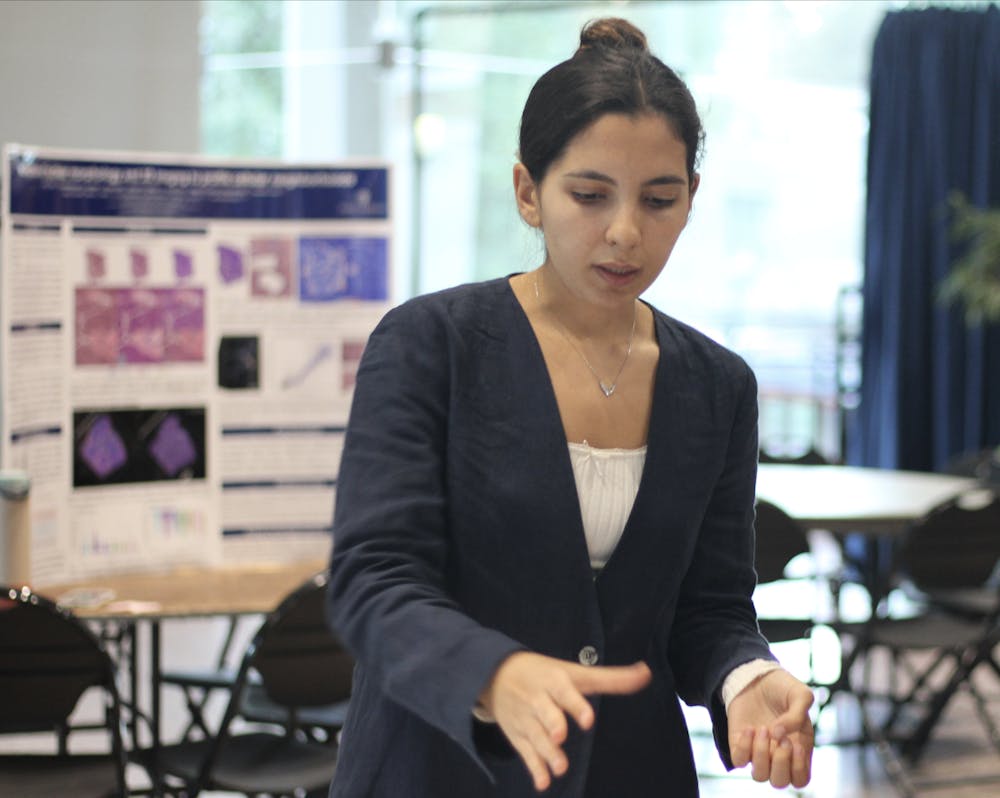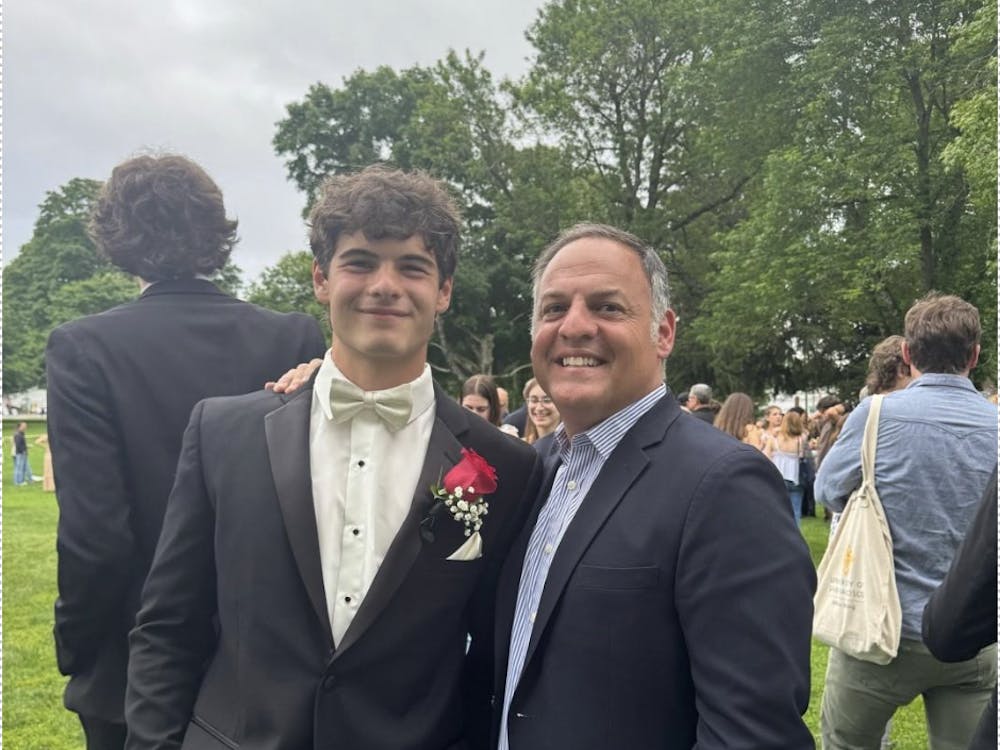
A few years ago, I figured that if I never wanted to feel anxious again, I could simply force myself to do things that make me nervous over and over again — until my hands no longer shook, my voice no longer trembled and my heart no longer sank.
With college, I hoped to fix every disappointment I had in myself. No need to worry, reader: I won’t provide you with a long list of my weaknesses. In fact, you don’t even need the whole list to read between the lines in this article because, over the years, I have concluded that every single insecurity I have about myself, in some shape and form, connects to one major issue: my public speaking anxiety.
I have been in a constant effort to fit into a mold I handcrafted: a figure that did not let doubts or insecurities take control of her speech. I pinched, slapped, broke every limb that refused to obey and conform. If I wanted to get over my speaking anxieties, I had to do it over and over and over again — and break several bones while doing so.
In high school, I partially overcame this issue by using the strategy I delicately (!) described a few paragraphs ago. During my first month as a high schooler, I somehow convinced myself to run against 20 people in a student council election, and gave a speech in front of my entire class.
The speech started with an awful monologue about making our school a better place, and ended with me leaving the microphone to shout my slogan out loud, which consisted of a reference to the well-known, decades-old Turkish drama series, Valley of the Wolves. Not to flex or anything, but I even had a custom sweatshirt made, with Memati in the front and my face at the back.
I’m pretty sure this was the moment the mold started forming — specifically, when I found the courage to chant to my entire class and make everyone cheerfully applaud. This was who I aspired to be, and who I would force myself to become over the next few years.
My biggest obstacle in reaching my ideal self was, ironically, myself. I stuttered when I wasn’t confident in what I was saying. I carried a constant fear of saying the wrong thing. Making a bad joke. Causing awkward silence, blank stares, confused exchanges. Looking stupid. Insensitive. Annoying. Foolish. Bossy. To sum all the negativity in a single word, being ashamed of myself and who I appeared to be in front of a crowd.
I have been trying for seven years now, putting myself in positions I’m uncomfortable in. Teaching recitation sections, leading meetings, presenting projects, defending proposals to my higher-ups. Anything that puts me on the spot and forces me to practice until I fully trust myself. I can easily see myself continue doing this, until the thought of failing becomes unthinkable.
But recently, I started thinking about what was so horrible about failing in front of a crowd, and what exactly I am scared of. What would happen if I forgot how eigenvectors relate to their eigenvalues in front of my linear algebra students? Or if the kinetic product mechanism I presented during my PILOT session was wrong? If I included a run-on sentence in this piece, would the editor editing the article question my capabilities? If I failed to remember every single detail about my research in front of my principal investigator (PI), would he fire me for disappointing him?
I actually didn’t need to leave any of these at the thinking stage, because all of them happened in real life at least once over the past few months. I was humbled to realize that, although the mistakes I made while teaching a section were embarrassing, none of my students seemed to remember them at the end of the semester. I received some suggestions here and there in my writing, but they all came with thoughtful reflections on my story. My PI decided to ignore my incompetence in memorizing the properties of hexagonal crystal systems, and instead decided to compliment me on the progress I have made with organic synthesis.
And with all of these, I realized that nobody expected me to be perfect, and life went on if I wasn’t the most capable at something. So, would it be fair of me to expect no embarrassing mistakes from myself? Further, can I ever become close to perfect if I don’t fail, or if I don’t let myself grow with my mistakes? What was ever the point of painfully carving myself to fit into the mold?
Buse Koldas is a junior from Istanbul, Turkey majoring in Chemical and Biomolecular Engineering. She is an Editor-in-Chief for The News-Letter. Her column discusses how her past experiences have affected her, with the hope of making others feel seen and understood.





